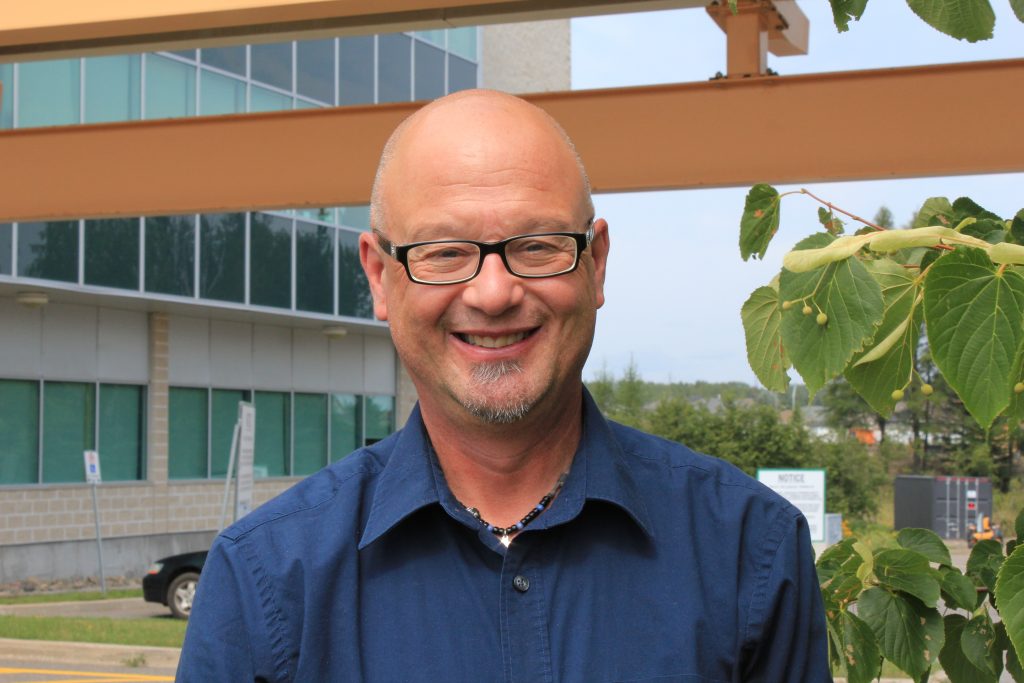Mindfulness in the Health Care Setting Reducing Stress at Work
by Katherine Mayer
 Dave Gladun, Registered Practical Nurse and Contract Administrator with the Northern Supply Chain at Thunder Bay Regional Health Sciences Centre, has facilitated mindfulness and relaxation classes for staff over the past three years. His classes provide his colleagues with a valuable opportunity to gain useful stress management techniques that can be used at work and at home.
Dave Gladun, Registered Practical Nurse and Contract Administrator with the Northern Supply Chain at Thunder Bay Regional Health Sciences Centre, has facilitated mindfulness and relaxation classes for staff over the past three years. His classes provide his colleagues with a valuable opportunity to gain useful stress management techniques that can be used at work and at home. Mindfulness practice is quickly making its way into many health care settings, and with good reason. Health care workers face one of the highest risks of suffering from work‐related or occupational stress, leading to burnout, physical illness, and even depression.
“Mindfulness is learning to be in the present moment, on purpose and not bringing judgment to whatever is occurring. The practice assists me in becoming less reactive or over reactive, but rather to respond in a more skillful manner,” said Dave Gladun, Registered Practical Nurse and Contract Administrator with the Northern Supply Chain at Thunder Bay Regional Health Sciences Centre.
Gladun has been facilitating relaxation and mindfulness classes for Hospital employees for the last three years. In his personal time, Gladun has taken a number of courses and immersion training related to Mindfulness Based Cognitive Therapy, and he generously shares his practice with our Hospital’s employees to help prevent, control and reduce elevated stress levels, both at work and at home. Even though we all have the ability to be mindful, it takes daily practice and dedication for it to be readily available.
Gladun’s interest in becoming a Mindfulness and Meditation Facilitator comes from his yoga practices and education in nursing. “As my personal practice deepened and benefits were achieved and sustained, I realized that the teachings could benefit many others, including providing health care workers with another tool in their ‘wellness tool belt’ to compliment Western medicine,” explained Gladun.
Hospital employees can participate in relaxation sessions and learn valuable mindfulness techniques, such as a 3-minute breathing space, body scan, and gentle stretching. “The opportunity for staff to have 30 minutes of relative peace and stillness in an environment that is extremely busy, allows the body and mind to recuperate and build resilience. The seeds of peace and mindfulness that are planted during the sessions grow and mature in each participant’s moments to come, and are potentially shared with others that are encountered,” said Gladun.
Holly Molnar, Booking Clerk in Interventional Radiology, attends the classes regularly. “The staff mindfulness sessions have been so beneficial for me. The biggest thing I’ve noticed about myself is that my reaction is different to stressful situations. I tend not to over-react as much as I used to and it is something that I have been working on through these mindfulness sessions, which in turn inspires me to do it at home. I have learned that everything does not need an immediate reaction. Recognizing this in myself is so fantastic, and really, really helpful in day to day life.”
There is no doubt why mindfulness and meditation practices are becoming widely used in workplace settings, such as health care organizations. Gladun suggests that, “The Wellness Movement, which includes both Western and Eastern healing practices, is growing stronger and is becoming a true lifestyle by which individuals can achieve the richest life possible.”